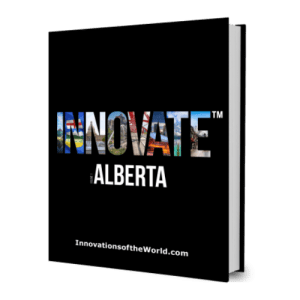Alberta has a rich history of entrepreneurialism originating in the oil and gas industry. From the first discovery of oil around 1900 to the rapid growth starting in the middle of the 20th century, fossil fuels have been the economic engine of the province. With one of the largest reserves of conventional oil and bitumen in the world, Alberta remains a key geopolitically stable supplier of energy. Oil and gas are a large part of Alberta’s identity.
In parallel, there is a growing focus on carbon emissions and the need to reduce them to mitigate climate change. There are very real and tangible impacts being felt globally resulting from measurable shifts in weather patterns. Closer to home, forest fires and flooding in Alberta and our neighbouring province have impacted the lives of many people in a tangible and permanent way. Homes and livelihoods have been lost. To add to it all, our ability to stay connected and exchange goods and energy with our neighbours is at risk as large parts of our infrastructure, from roads to pipelines, have been affected.
There is much in our situation that seems at odds and irreconcilable with our economy and way of life. So how do you remain an optimist in the midst of all of this?
There is no doubt we have some hard work to do.
We need to find a path between today’s fossil fuel-based economy to one that is largely decarbonized – and we need to do this in a responsible way. We certainly cannot ‘turn off the taps’ to oil and gas tomorrow, and we certainly cannot continue on the current path. I think the answer lies in innovative Albertans and the economic opportunity that is in front of us. Too much of the current focus is on the negative side of the equation – for sure, there are downsides to changing our approach to oil and gas usage – but there are also opportunities.
I look around and see change all around me. It isn’t easy but I see one of Canada’s youngest and most entrepreneurial populations motivated to make change in their daily lives and in their daily work. I see a thriving and growing services sector in the province. I see oil and gas revenue being reinvested in clean technologies that will reduce the carbon footprint – technologies that will be needed to support our transition. I see an increase in entrepreneurship and innovation from small retail to the development of an entire net-zero hydrogen energy complex in Alberta’s industrial heartland. I see innovation in lithium mining, and I see innovation and incubation for the technology sector. These efforts are supported by world-leading researchers in our universities. These are just a few examples.
There is no denying that we have a lot of hard work ahead of us, but there is reason to look forward with optimism – even lead the way. Our contribution to decarbonization lies in the innovators in the province.
Let’s roll up our sleeves and get to work!
Reena has over 25 years of experience in the energy sector and is the founder and owner of Jiva, an independent training and consulting organization focused on the energy and infrastructure industries. In addition to her engineering background and experience in the training sector, she brings strong project management skills and experience to delivering complex consulting engagements both locally and internationally. Reena is a member of APEGA as well as the INGAA Foundation Board and has been active with a number of industry organizations including the Pipeline Systems Division of The American Society of Mechanical Engineers (ASME) and NACE International. She co-authored the book “Encyclopaedic Dictionary of Pipeline Integrity,” which was published in 2012. Reena was the 2020 recipient of the Canadian Energy Pipeline Association (CEPA) Foundation’s Outstanding Contribution & Achievement Award and was recently nominated for an award through AWE (Alberta Women Entrepreneurs). In the pursuit of lifelong learning, she is currently working towards a Master’s in Global Development (Sustainability) through Harvard Extension.













